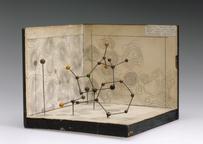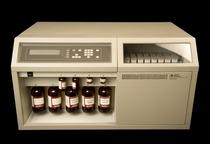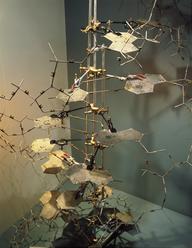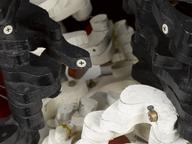

Polymerase Chain Reaction Machine for amplifying DNA, Cambridge, England, 1988
- maker:
- Cambio Limited
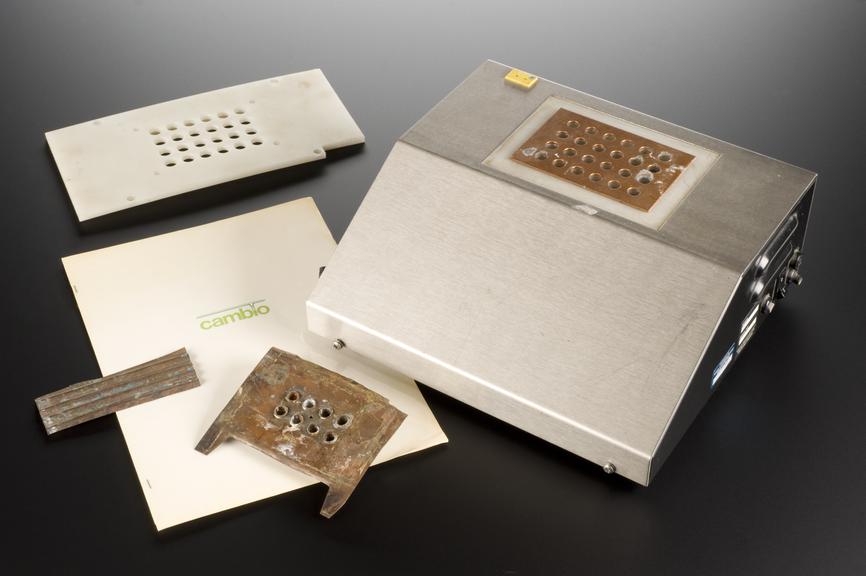
Prototype PCR (polymerase chain reaction) machine with intelligent heating block (IHB), accompanied with prototype parts and operating manual. This machine was developed by Dr Peter Dean and Professor Sir Martin Evans (Cambio Company) Cambridge, 1988.
DNA segments were amplified up to 30 million times using this prototype Polymerase Chain Reaction (PCR) machine. It was developed by Dr Peter Dean and Professor Sir Martin Evans (b. 1941) through the Cambio company in Cambridge, England in 1988. Such devices let scientists make millions of copies of scarce samples of DNA. It is shown with an ‘intelligent heating block’ (IHB), accessories and an operating manual.
The first PCR machine was patented by CETUS in the US in 1985. Design of a comparable device began in Cambridge soon after. This machine was the first to be sold and was used at the National Institute for Medical Research laboratory in Mill Hill, London.

